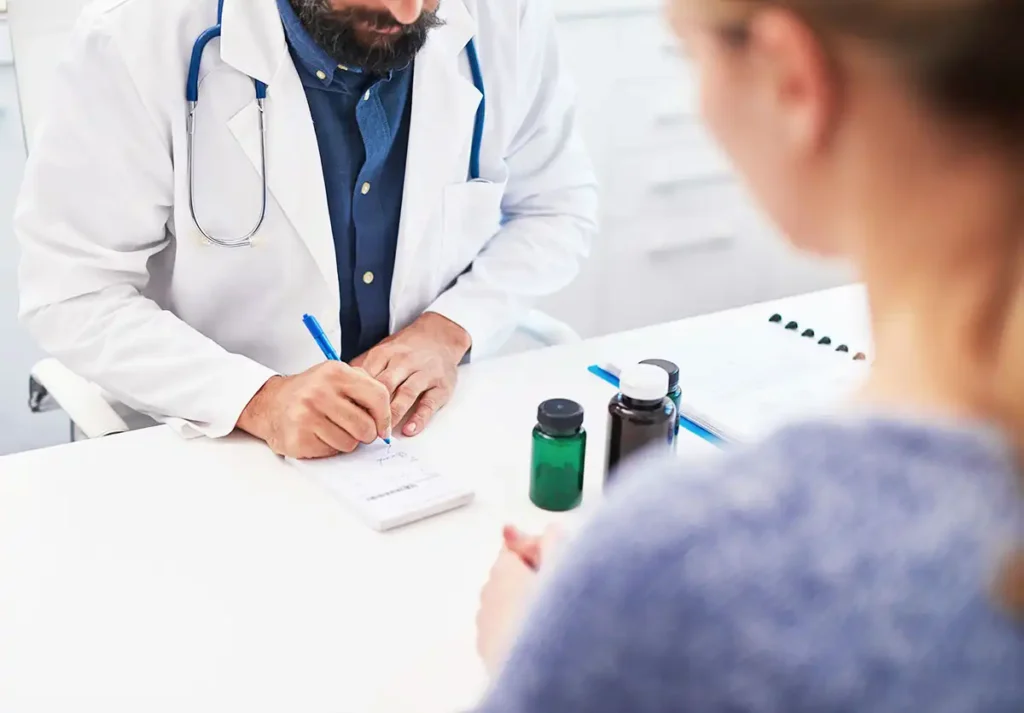Introduction
Prescription drug addiction has become a growing epidemic, affecting individuals across all demographics. While these medications are often prescribed for legitimate medical conditions, their misuse can lead to dependence, addiction, and severe health consequences. At Compassion Recovery Centers, we recognize the dangers of prescription drug addiction and provide comprehensive treatment solutions to help individuals regain control of their lives. This article will explore the causes, symptoms, and treatment options for overcoming prescription drug addiction.
What is Prescription Drug Addiction?
Prescription drug addiction occurs when an individual becomes physically and psychologically dependent on medication. This often happens when drugs are misused—whether by taking higher doses than prescribed, using someone else’s prescription, or consuming the medication for non-medical reasons. The most commonly abused prescription drugs fall into three categories:
- Opioids (Pain Relievers): Examples include oxycodone, hydrocodone, morphine, and fentanyl. These medications are highly addictive and can lead to respiratory depression and overdose.
- Central Nervous System (CNS) Depressants: Includes benzodiazepines like Xanax, Valium, and Ativan, which are prescribed for anxiety and sleep disorders but can cause severe withdrawal symptoms.
- Stimulants: Drugs like Adderall and Ritalin are used to treat ADHD but can be addictive when misused for energy boosts or cognitive enhancement.

Causes of Prescription Drug Addiction
Several factors contribute to the development of prescription drug addiction, including:
- Chronic Pain or Mental Health Issues: Individuals managing long-term pain or mental health conditions may overuse medications to alleviate discomfort.
- Genetic and Environmental Influences: A family history of substance abuse and exposure to a drug-friendly environment increases addiction risks.
- Misuse and Overprescription: Easy access to prescription drugs and lack of awareness about their dangers contribute to dependency.
- Psychological and Emotional Factors: Stress, trauma, and social pressures can push individuals toward self-medication.
Get your question answered now.
Recognizing the Signs and Symptoms of Prescription Drug Addiction
Understanding the warning signs of prescription drug addiction is critical for early intervention. Common symptoms include:
- Physical Signs: Drowsiness, confusion, slurred speech, dizziness, and respiratory issues.
- Behavioral Changes: Doctor shopping, taking higher doses than prescribed, secrecy about drug use, and withdrawing from social activities.
- Psychological Symptoms: Mood swings, anxiety, paranoia, depression, and difficulty concentrating.
- Withdrawal Symptoms: Nausea, vomiting, insomnia, muscle pain, sweating, and severe cravings when attempting to quit.

The Dangers of Prescription Drug Addiction
Addiction to prescription drugs poses significant health risks, including:
- Overdose and Death: High doses can lead to respiratory failure, coma, or fatal overdose, especially with opioids and benzodiazepines.
- Cognitive Impairment: Long-term misuse can affect memory, decision-making, and overall cognitive function.
- Organ Damage: Prolonged abuse can harm the liver, kidneys, and cardiovascular system.
- Mental Health Decline: Increased risk of depression, anxiety, and psychotic episodes.
Overcoming Prescription Drug Addiction: The Road to Recovery
Recovery from prescription drug addiction requires professional support and a structured treatment plan. At Compassion Recovery Centers, we offer specialized programs to help individuals safely detox and transition into a sober lifestyle.
1. Medical Detoxification
Detox is the first step in overcoming prescription drug addiction. A medically supervised detox ensures safe withdrawal management, preventing severe complications such as seizures or dehydration.
2. Inpatient and Outpatient Treatment
- Inpatient Rehab: Provides a structured environment with 24/7 medical and psychological support, ideal for severe addiction cases.
- Outpatient Rehab: Allows individuals to receive treatment while maintaining daily responsibilities, suitable for those with mild to moderate addiction.
3. Therapy and Counseling
- Cognitive Behavioral Therapy (CBT): Helps individuals identify and change harmful thought patterns that contribute to addiction.
- Group Therapy: Offers peer support and shared experiences to promote healing.
- Family Therapy: Involves loved ones in the recovery process to rebuild relationships and create a strong support system.
4. Medication-Assisted Treatment (MAT)
In some cases, medications such as Suboxone or Methadone may be used to reduce cravings and withdrawal symptoms under medical supervision.
5. Aftercare and Relapse Prevention
Sustaining long-term recovery requires continuous support. Compassion Recovery Centers offers aftercare programs, including support groups, sober living arrangements, and relapse prevention strategies to help individuals maintain sobriety.

Seeking Help for Prescription Drug Addiction
If you or a loved one is struggling with prescription drug addiction, seeking professional help is essential. At Compassion Recovery Centers, our experienced team provides compassionate care, evidence-based treatments, and a personalized recovery plan to help individuals reclaim their lives.
Conclusion
Prescription drug addiction is a serious but treatable condition. Recognizing the signs, understanding the risks, and seeking professional help can pave the way for lasting recovery. At Compassion Recovery Centers, we are dedicated to guiding individuals through every step of the healing process. If you or someone you know needs help, reach out today—your journey to a healthier, drug-free life begins now.










